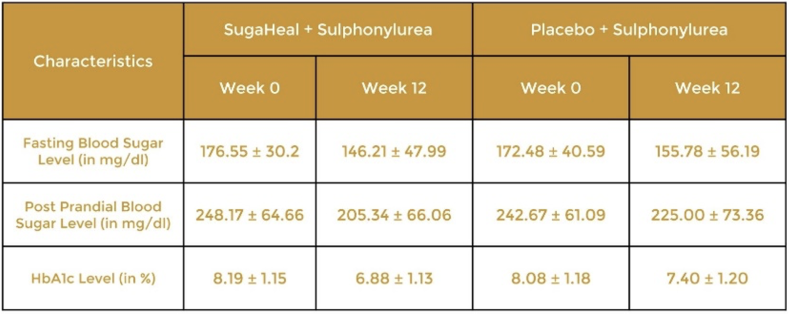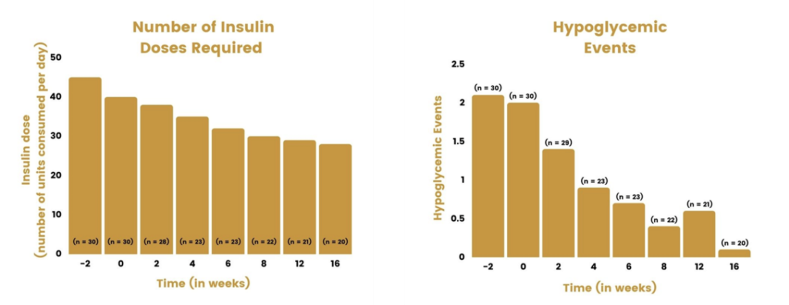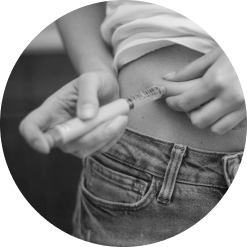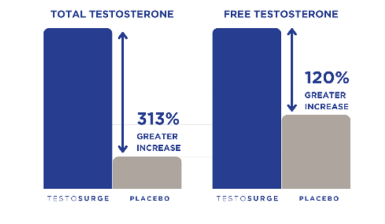OVERVIEW
VARIANTS
OVERVIEW
VARIANTS
HEALTH BENEFITS
Benefits of healthy blood sugar levels
USP
USP
SCIENCE
Scenario
Scenario
- According to research, around 30% of overweight men have Testosterone Deficiency.
- 38% of men above 40 have testosterone levels below 300 ng/dl.
- Above the 80-year threshold, more than 50% of men have testosterone levels below 300 ng/dl.
- As far as diabetes patients go, up to 24% of men have low testosterone levels.
- Low T-levels are harmful for all aspects, including physical, mental, and social
Reference:
Foundation
Foundation

A broad spectrum of systematic reviews and scientific data demonstrated that fenugreek and its extracts improve glycemic and lipid profiles. Fenugreek is known to have antioxidant, anti-carcinogenic, gastro protective, anti-inflammatory, antimicrobial, immunological, anti-obesity, and hepatoprotective effects, and are beneficial to women’s health. Further, previous studies reported that fenugreek improved cognitive functions and Parkinson’s symptoms and showed anti anxiety, antidepressant, and neuroprotective properties. A recent study has reported the beneficial effects of fenugreek and its extract on hormonal-related statuses, such as galactagogue in lactating women and male impotence.
The presence of fenugreek seeds in various traditional medicinal systems is due to their composition of diverse phytochemicals, including Glycosides.
Potential benefits of fenugreek glycosides in testosterone production include: Increased Testosterone Levels:
- Fenugreek supplementation may lead to an increase in testosterone levels, which could have positive effects on muscle mass, strength, and overall vitality.
- Enhanced Libido: Fenugreek has been traditionally used as an aphrodisiac, and its potential influence on testosterone levels may contribute to improvements in libido and sexual health.
- Improved Exercise Performance: Higher testosterone levels may be associated with increased exercise performance and muscle strength, making fenugreek an area of interest for athletes and those involved in physical fitness.
- Spermatogenesis Support: Testosterone plays a crucial role in spermatogenesis (sperm production), and fenugreek’s potential impact on testosterone levels may have implications for male reproductive health.
Mechanism of action
Mechanism of Action
Testosurge® is standardized to include a specific combination of steroidal and flavonoid glycosides. The steroidal glycosides in Testosurge® enhance the effectiveness of testosterone by competitively binding with SHBG. When testosterone is released into the bloodstream approximately 60-70% of it binds to SHBG. The steroidal glycosides from Testosurge® binds to SHBG and make testosterone free and bioavailable.
On the other hand, the flavonoid glycosides in Testosurge® play a role in increasing testosterone production. They achieve this by enhancing the expression of the steroidogenic acute regulatory (StAR) protein in Leydig cells. Testosterone is produced within the mitochondria of Leydig cells through steroidogenesis, where the StAR protein facilitates the entry of cholesterol into the mitochondrion.
Testosurge® has demonstrated inhibitory activity against5-alpha reductase and aromatase in cell line studies. 5-alpha reductase is an enzyme responsible for converting testosterone into DHT, while aromatase converts testosterone into Estrogen. This inhibition activity suggests that Testosurge® may help regulate the levels of these hormones in the body.
Additionally, Testosurge® can inhibit PDE5 enzyme which canresult in improved vasodilation and penile blood flow.
Efficacy
Efficacy
Human Clinical Study 1: Effects of Testosurge® supplementation on strength, body composition and hormonal profiles during an 8-week resistance training program.
Human Clinical Study 2: Effects of Single dose Testosurge® on serum testosterone levels of healthy sedentary male subjects
Scenario
Scenario
- The number of people with diabetes rose from 108 million in 1980 to 422 million in 2014. Prevalence has been rising more rapidly in low- and middle-income countries than in high-income countries.
- In 2021, 38.4 million Americans, or 11.6% of the population, had diabetes. Of the 38.4 million adults with diabetes, 29.7 million were diagnosed, and 8.7 million were undiagnosed.
- In 2019, diabetes and kidney disease due to diabetes caused an estimated 2 million deaths.
- A healthy diet, regular physical activity, maintaining a normal body weight and avoiding tobacco use are ways to prevent or delay the onset of type 2 diabetes.
Reference:
FOUNDATION
FOUNDATION
Originating in the Mediterranean, southern Europe, and western Asia, fenugreek is a highly esteemed herb in traditional systems for its diverse benefits. The seeds, renowned for their multifaceted advantages, not only enhance culinary experiences with their distinctive flavour but also play a crucial role in promoting health.
With a rich history in traditional medicinal practices like Ayurveda and traditional Chinese medicine, fenugreek is valued for supporting digestion, maintaining heart health, and regulating blood sugar levels. Its enduring reputation across cultures highlights its versatility and health-promoting properties.
The 4 Hydroxy isoleucine has a well-researched science which shows the insulinotropic properties and its potential as an anti-diabetic pharmacological compound and improves various conditions prevailing in Type 2 Diabetes.
Mechanism
of action
Mechanism of Action

The general condition for type 2 diabetic mellitus is:
- Decrease in Glucose uptake/transport from the blood to Skeletal muscles and peripheral tissues.
- This can be due to the condition of Insulin Resistance caused by Inflammatory cytokines and proteins.
- Inflammation is the result of chronic obesity or permeability in the gut or other pathological stress conditions.
SugaHeal is standardized to 4-hydoxy isoleucine(4-HI) and Trigonelline from fenugreek seeds. Extract contains a synergistic blend of 20% 4HI and 20% Trigonelline to give a wholesome effect of both the molecules to support the healthy blood glucose level and reduce the variability in HbA1c readings in type 2 Diabetes mellitus.
The 4 Hydroxy isoleucine has a well-researched science which shows the insulinotropic properties and its potential as an anti-diabetic pharmacological compound and improves various conditions prevailing in Type 2 Diabetes mellitus through the following mechanism of action:
- 4-Hydroxy Isoleucine(4-HI), a derivative of Isoleucine shows the Hypoglycaemic effect by uplifting the muscle uptake in skeletal muscles and peripheral tissues. The increased uptake of glucose through 4HI induced increase in GLUT4 translocation improves the blood glucose level and reduces the Hyperglycaemic conditions.
- Liver synthesizes the glucose during fed state and stores in the form of glycogen. Hepatic insulin resistance prevents the conversion of stored glycogen into glucose when required mostly during fasting period which leads to the hypoglycaemic condition. 4-Hydroxy Isoleucine(4-HI), improves the hepatic insulin resistance by restoring Glycogen synthesis.
- 4-Hydroxy Isoleucine(4-HI), improves the insulin resistance caused by inflammatory cytokines such as TNF-α induced by chronic obesity, High % of Free fatty acids.
- Trigonelline improves the mitochondrial dysfunctions caused by oxidative stress via its potent antioxidant mechanism.
Efficacy
Efficacy
Human Clinical Study 1: Effect and safety of SUGAHEAL as add-on therapy in patients with Type 2 diabetes mellitus on sulfonylurea (SU) therapy, 12 weeks, randomized, double blind, placebo controlled, multi-centric study.
Total 119 patients were randomized for equal ratio of 1:1 to add-on therapy of SugaHeal & placebo. They were administered 700mg SugaHeal and placebo thrice a day for 12 weeks, respectively. Their fasting and post prandial glucose levels, HbA1C, Insulin dosage was monitored, the results of which were as below.

Result: SugaHeal maintains Glycated Haemoglobin levels (HbA1c) in the optimum range. Support Healthy blood sugar level.
Human Clinical Study 2: Add-on therapy of SugaHeal in type 2 Diabetes mellitus patients with insulin therapy. An efficacy & Safety study

Result: Patients had improved glycemic control. Decrease in levels of number of insulin doses needed per day. Reduction in number of hypoglycemic events per day.















